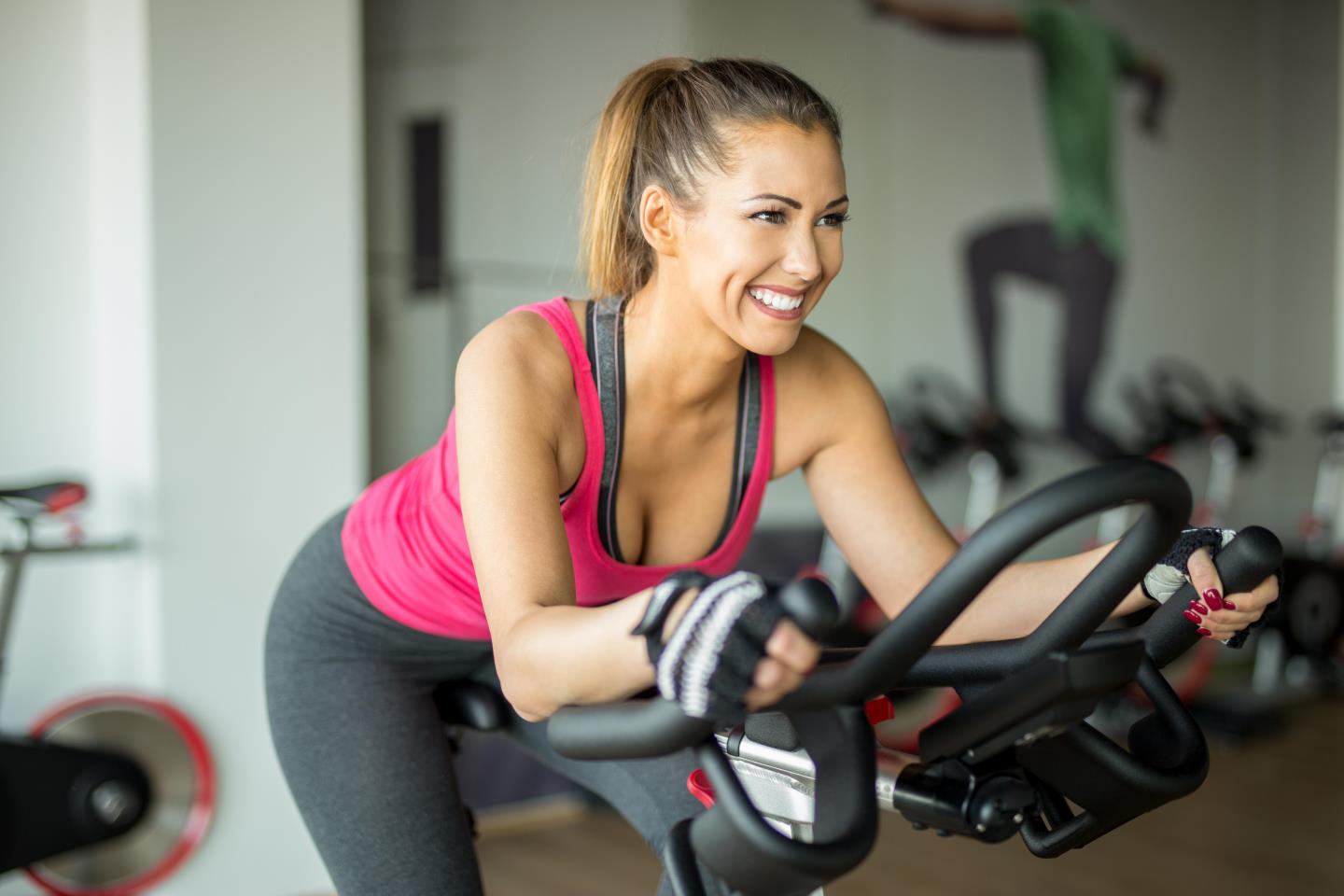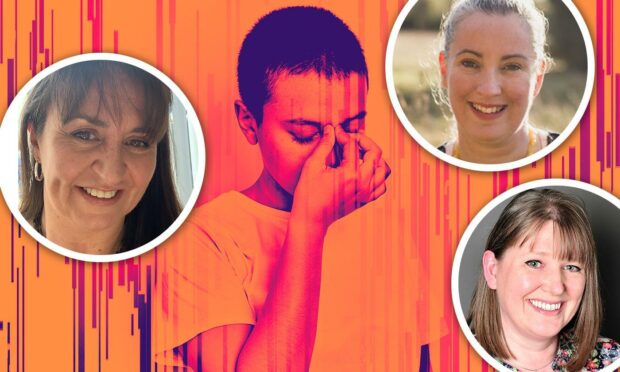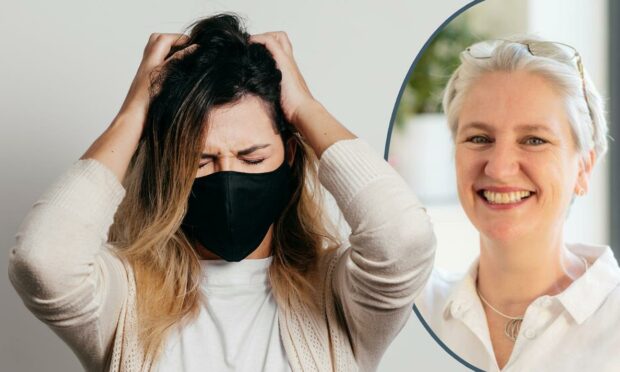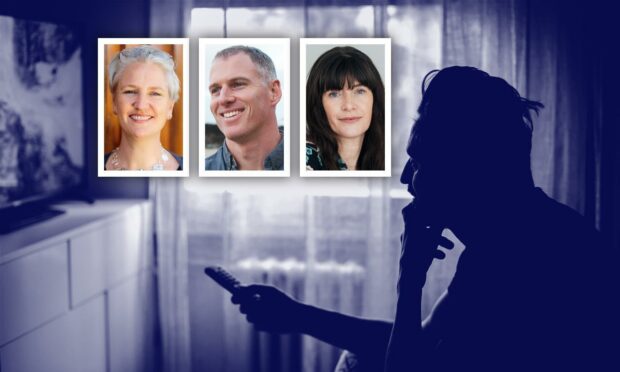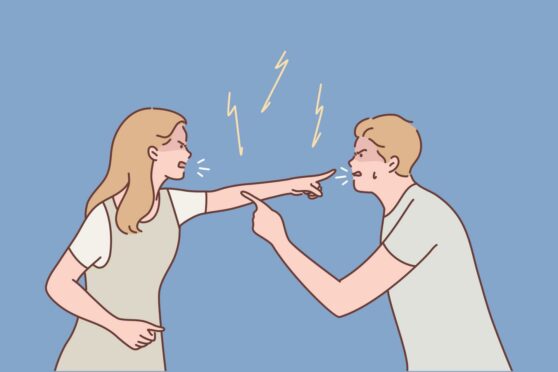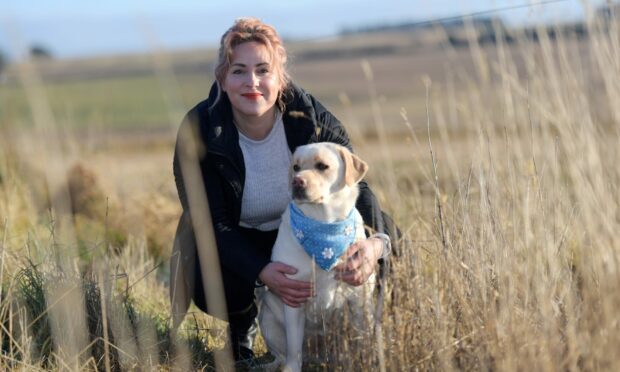With the pandemic triggering mental health concerns for many, Ellie Goulding, who already battles anxiety, has described 2021 as the hardest year of her life.
The 35-year-old hit singer has admitted the condition has “dictated” much of her career.
She explained in an Instagram post: “So many of you have been asking how I’m doing and often do not get a reply.
“It’s because I’ve been too scared to admit that the answer is: not very good.”
But Goulding chose to speak out in the hope of encouraging others to do the same.
And Aberdeen-based psychotherapist Nara Morrison believes it can help destigmatise the condition and “make it acceptable for the rest of us”.
What are the symptoms?
Ellie Goulding described herself as experiencing “sheer panic and dread” in her “heart and brain.”
Anxiety can create a wide variety of symptoms – with many unsure how to cope.
Over time, Nara says ways of thinking can change to try and adapt to the anxiety.
“The brain begins looking for signs of danger, then starts seeing it everywhere, even if it doesn’t exist,” she explained.
“We feel uncontrollable worry and fear, and struggle to concentrate and think straight.
“This feeds the brain with information that we are indeed in danger. And the brain releases even more chemicals.
“If this endless loop is not broken, the consequences for physical and mental health may be destructive.”
Alongside the psychological effects, anxiety can also take a physical toll on our bodies.
Nara explained: “Once chemicals are released into the body, we experience physical symptoms of anxiety – muscle tension, neck and backache, increased heart rate.
“To support muscles and pump oxygen towards them, we begin to breathe fast.
“Our digestive and immune systems stop working properly because the body preserves energy for a more important thing: survival. It becomes hard to concentrate.”
How common is anxiety – and where does it come from?
It is estimated that 5% of the UK’s population have GAD (generalised anxiety disorder).
Slightly more women are affected by the condition than men and, while it’s prominent in all age groups, it’s most prominent in people aged 35 to 39.
The exact cause isn’t always entirely clear. However, there are factors that may increase someone’s risk of developing anxiety.
Firstly, it could be down to genetics – running in someone’s family – or a chemical imbalance in the body.
Past experiences can also play a role. When we have bad experiences in the past, sometimes, instead of learning lessons from those experiences, we begin to avoid those situations.
Additionally, how we talk to ourselves matters. There is a voice in our head talking to us all the time and, quite often, it is very negative.
How can I manage my anxiety?
Nara says we need to learn the root of our anxieties and where they come from, so we can be better prepared to tackle them.
That can be difficult, especially when we perceive we could be in danger.
“Our perception of the situation… most often does not reflect the reality,” she explained.
“We think something is wrong with us. We might try to treat symptoms or accept that we are too weak to do anything about it.”
This can also lead to longer-term changes in our behaviour.
It is important to understand when and why we experience anxiety.”
She added: “For example, [if someone] had a bad experience of public speaking, they may avoid doing important presentations at work.
“This may lead to a sad situation when they won’t receive the promotion they dreamed about for a long time.
“It is important to understand when and why we experience anxiety.”
Even those who are at risk of anxiety due to genetics can nip it in the bud early on.
Nara said: “Of course, we can’t do much when it comes to genes. However, we can develop habits that can help us.
“For instance, someone with heart problems in the family will also have a genetic predisposition to heart diseases.
“However, if they eat well, exercise and have regular check-ups, the likelihood of having such a disease is minimised.
“In the same way, with anxiety, we may be able to prevent it if we develop healthy habits that help to cope with stressful situations, including exercise, good eating habits and other self-care practices.”
What happens next?
There are various ways anxiety can be treated.
Nara described her approach: “I offer stress coaching over two to three months, and teach clients techniques to reduce stress and they can use those techniques long after our sessions are over.
“These techniques include relaxation, proper breathing and working on negative thoughts.
“But these are techniques that we can learn ourselves. And it is worth spending time and energy to do this.
“Meditation and slow breathing are just some of the exercises we can practice in our everyday life to cope with stress.
“Once we learn to manage our stress levels, we will not feel as overwhelmed as before and will be able to manage anxiety – or even get rid of it.”



